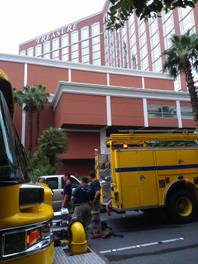 An employee handbook is an important communication tool between you and your employees. A well-written handbook sets forth your expectations for your employees, and describes what they can expect from your company. It also should describe your legal obligations as an employer, and your employees’ rights. This guide will help you write an employee handbook, which typically includes the topics below.
An employee handbook is an important communication tool between you and your employees. A well-written handbook sets forth your expectations for your employees, and describes what they can expect from your company. It also should describe your legal obligations as an employer, and your employees’ rights. This guide will help you write an employee handbook, which typically includes the topics below.
Anti-Discrimination Policies
- Equal employment opportunity laws prohibiting discrimination and harassment
- Americans with Disabilities Act.
Compensation
Work Schedules
- Work hours and schedules
- Attendance, punctuality and reporting absences
- Guidelines for flexible schedules and telecommuting.
Standards of Conduct
- Dress code and ethics
- Legal obligations
General Employment Information
- Employment & Labor Laws
- Foreign Workers, Immigration & Employee Eligibility
- Performing Pre-Employment Background Checks
- Terminating Employees
- Unions
Safety and Security
- Occupational Safety and Health Administration’s laws
- Reporting of all accidents, injuries, potential safety hazards, safety suggestions and health and safety related issues to management.
For more: http://www.sba.gov/content/employee-handbooks










